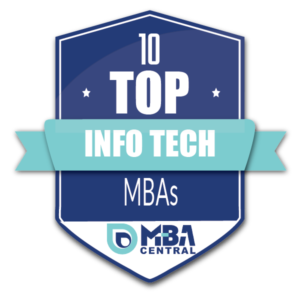
According to U.S. News & World Report, an MBA adds sophistication and flexibility to a candidate’s resume because it translates into cutting-edge thinking in finance, marketing, and capital markets. In today’s globally connected world, information systems are integral to any businesses’ operations, and modern managers must be well-versed in the use of technology to accomplish goals, strategize, and solve problems. A concentration in Information Technology will blend both strategic and tactical perspectives, providing you with skills that enable you to advance to more desirable positions within a corporate IT department. Selecting an online MBA program in the field of Information Technology will not only help you as a busy professional needing to juggle work, family, and coursework, but it will also set you apart from the competition. Global thinking, social responsibility, and industry perspective are among the practices that a career-focused MBA program will prepare you for. While a general MBA program will indeed give you the practical business knowledge and skills you need for strategic leadership, why not align your learning to your career goals by pursuing a specialization in Information Technology? An advanced degree will further distinguish you and definitively give you a competitive edge. By gaining knowledge in data management, you will develop an understanding of managerial issues facing the technology space and gain a significant expertise in this essential functional area. You will be equipped with skills in IT analysis and systems technology and learn to understand the strategic importance of information systems, their impacts on businesses, and the various ways they can improve the work practices within an organization. In other words, as an IT professional, you will be able to meet both the business and technology-related needs of an organization and gain a deep understanding of how technology affects the success of a business.
A typical curriculum will provide an in-depth coverage of the role of information systems in a business organization while emphasizing applications of information systems and the current issues facing IT professionals. Additionally, students will gain experience in the planning, coordination, and management skills needed to manage or work with an IT service organization. A major program emphasis is to teach how to manage technology projects; lead strategically, acquire collaborative skills, and coach in a broad business context; analyze a business process and identify opportunities for technology; and develop a business plan that integrates technology into the business enterprise. Moreover, you will learn about the information, data, and technology structures of an organization and gain an appreciation for ethical decision-making and social responsibility within an organizational environment. By the end of the program, you will have a deeper understanding of the real life work environment in the field of technology management and will be able to apply relevant information immediately to the workplace. Due to the fact that technology is advancing and evolving at a faster rate than ever, there is a great demand for IT professionals, thus, career outlook for computer and information systems managers, including CIOs, is looking very favorable. The Bureau of Labor Statistics (BLS) reports that there will be 15% growth in this occupational field by 2024. Furthermore, many project managers advance to administrative positions, like chief technology officer, within their organization. The average salary for a computer and information systems manager is $131,600. However, top executives (which represent the top 10% of computer and information systems managers) potentially earn more than $187,200.
If you’re seeking a career or greater opportunities with a leading technology company or a technology-driven organization, earning an MBA in Information Technology will definitely prepare you to succeed in an IT project management position. For your convenience, we have selected the 10 best online programs on the basis of affordability (average graduate indebtedness, percentage of graduates taking on student loan debt), the quality of support services, and overall prestige.
1. Campbellsville University School of Business and Economics

Campbellsville University School of Business and Economics (CU), founded in 1906, is a private, Christ-centered, grounded in the liberal arts. The programs at Campbellsville University online have been awarded numerous top distinctions by U.S. News & World Report, Forbes, and TheBestSchools.org to name a few–Campbellsville has been ranked 4th most affordable among top 50 colleges in the country. The school can be found on a rural 95-acre campus in Campbellsville, Kentucky. Accredited by the Southern Association Of Colleges And Schools Commission On Colleges (SACSCOC), CU ranked #106 Regional Universities South, by U.S. News & World Report in 2018. Campbellsville University School of Business and Economics offers an average class size of 22 and 62.2% of classes cater to fewer than 20 students.
Campbellsville University School of Business and Economics’ Master of Business Administration is a fully-online program designed for working professionals (In fact, 85% of students are working when they enroll) who are seeking careers in management-level jobs, thus emphasis is placed on skills and tools employers are looking for in management employees. Gain advanced strategies and techniques in foundational business areas, including marketing, human resources, finances, and more–all within as little as 2 years. The 36-credit-hour curriculum requires 27 core credit-hours and 9 credit-hours of elective courses relevant to the major; the program integrates business ethics, leadership, communication, marketing, human resources, and strategic thinking. Of course, the specialization is in Information Technology, so the program will prepare you to deal with managerial issues within the technology space. The program offers prestige because 100% of faculty members hold terminal degrees in their field and have real-world business experience in data management. Campbellsville has also earned a #86 ranking for Best Online MBA Programs. Additionally, the program is affordable because average indebtedness of graduates is only $16,000. Additionally, only 26% of graduates take on student debt. Finally, the program offers flexibility thanks to an online chat service that connects students with an enrollment counselor.
2. Creighton University
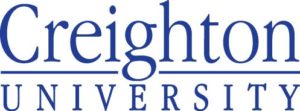
Creighton University, founded in 1878, is a private, Catholic, Jesuit institution. The school occupies an urban, state-of-the-art renovated space, within a ten-minute walk of downtown and riverfront restaurants, entertainment, and corporate business headquarters. The 139-acre campus can be found in Omaha, NE, the largest city in the state of Nebraska. Creighton was ranked #1 Regional Universities Midwest and #6 Best Value Schools in 2018 by U.S. News & World Report. Creighton University enrolls approximately 4,203 undergraduate students, has an average class size of 15, and 44.1 of classes cater to less than than 20 students.
Creighton University’s Master of Business Administration (MBA) is for busy professionals who want a program that is customizable to meet their skills, experience, and career aspirations. Grounded in strong ethical business values, you will learn how to be leaders through service to others. Students will gain general business management education through advanced specialized business education depending on your present level. The program has an average completion time of two years and eight weeks over 11 eight-week terms but students can finish faster when taking more than one course per term. The 33-credit-hour program requires 3 core and 3 elective courses including: Leadership & Organizational Behavior, Business Policy & Managerial Action, Business, Ethics & Society, or Legal, Ethical, & Societal Considerations in Healthcare Management. The remaining 8 courses can be customized. For instance, students who hold an undergraduate degree in business will take Concentration courses rather than Functional Core courses. The program provides prestige because programs at Creighton University are accredited by the Association to Advance Collegiate Schools of Business, the gold standard of business school accreditation. Creighton has also earned a #47 ranking for Best Online MBA Programs, and 89% of professors hold terminal degrees. Furthermore, average indebtedness of graduates is only $18,233 and 29% of graduates take on student loan debt.
3. City University of Seattle
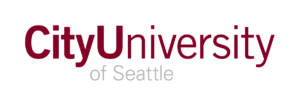 City University of Seattle started in 1973, is a private not-for-profit institution, serving the working adults, with a ranking by the U.S. News & World Report for being among the top online bachelor’s degree programs and among the top online programs for veterans in the U.S. Centered on real-world application paired with high quality, relevant education, CityU has a world class Learning Resource Center–an onsite counseling center and career center. The school operates a campus in Bellevue, WA. Additionally, the school provides an intimate learning experience with an average class size of 15 students. Accredited by the Northwest Commission On Colleges And Universities, CityU of Seattle ranked is unranked in Regional Universities West by U.S. News & World Report for 2018.
City University of Seattle started in 1973, is a private not-for-profit institution, serving the working adults, with a ranking by the U.S. News & World Report for being among the top online bachelor’s degree programs and among the top online programs for veterans in the U.S. Centered on real-world application paired with high quality, relevant education, CityU has a world class Learning Resource Center–an onsite counseling center and career center. The school operates a campus in Bellevue, WA. Additionally, the school provides an intimate learning experience with an average class size of 15 students. Accredited by the Northwest Commission On Colleges And Universities, CityU of Seattle ranked is unranked in Regional Universities West by U.S. News & World Report for 2018.
City University of Seattle’s Master of Business Administration is a flexible, innovative, relevant program that will prepare you for executive leadership and managerial roles while improving your business intelligence and persuasive communication skills. The rigorous curriculum will prepare you to advance your career by focusing on planning, strategizing, and capitalizing on business trends and opportunities in a continuously changing global environment. The 48-51 credit-hour curriculum requires 12 quarter-credit-hours of elective courses that focus on how to manage technology projects; lead information technology organizations; analyze business processes and identify opportunities for technology; and develop business plans that integrate technology for business organizations. The Technology Management Emphasis includes courses like: Information Security, Senior Managers & Information Security, Managing the Technology Project, Responsibilities of Global Citizenship, and more. The program promises prestige due to a #171 ranking for Best Online MBA Programs. Furthermore, only 5% of graduates take on student loan debt. Finally, the program offers support services thanks to 24×7 access to online course technical support.
4. University of Wisconsin-Whitewater

University of Wisconsin-Whitewater (UWW), founded in 1868, is a public institution committed to providing generous financial aid packages to students. In fact, 51% of full-time undergraduate students receive need-based aid while almost 50% of undergraduates have their financial aid needs fully met. Although the campus is located in a suburban environment, Whitewater is only a little more than an hour’s drive from Milwaukee, WI. The University of Wisconsin-Whitewater maintains institutional accreditation through the Higher Learning Commission and enrolls approximately 12,000 students. Additionally, the school ranked #61 Regional Universities Midwest and #249 (tie) in Business Programs in 2018 by U.S. News & World Report
University of Wisconsin-Whitewater offers a 22-to-1 student-faculty ratio where 37.5% of classes cater to less than 20 students and the average class size is 35 students.
University of Wisconsin-Whitewater’s Master of Business Administration (MBA) innovative program reflects what industry leaders are looking for and will develop your skills in leadership, strategic decisions, and project management and will also teach you how to think ethically and globally. The 36-credit-hour curriculum requires 24 core courses covering a range of fundamental business skills, and students may choose 9 credit hours of emphasis among nine different specializations, including an Information Technology Management option. Coursework focuses on Service Management, Data Analytics and Business Intelligence, Business Process Innovation and Management, Topics in IT and Management, and Disaster Recovery and Business Continuity. The program guarantees prestige with its AACSB-accreditation–something less than 5% of international business schools can claim while 100 percent of its faculty hold terminal degrees. Moreover, the average indebtedness of graduates is merely $12,620. Finally, the program guarantees affordability because only 30 percent of students acquire a student loan debt.
5.West Texas A&M University College of Business
![]()
West Texas A&M University College of Business (WTAMU), started in 1910, is a member of the public Texas A&M University System and a leader in distance education. With a #145 Best Risk-Reward for College Students ranking from lendedu.com, West Texas A&M University is committed to academic, personal, and professional success and offers a wide range of programs and services from counseling services to medical services, veterans services and more, but also helps with academics, campus and community engagement, leadership, and career development. The school sits on a suburban, residential 135-acre campus adjacent to a ranch spanning over 2,300 acres in Canyon, TX. Also accredited by the Southern Association Of Colleges And Schools Commission On Colleges (SACSCOC), WTAMU ranks #81 Regional Universities West by U.S. News & World Report for 2018. West Texas A&M University College of Business enrolls about 7,477 undergraduate students, provides a student-faculty ratio of 20:1, and 35% of classes cater to fewer than 20 students while the average class size is 38.
West Texas A&M University College of Business’ Master of Business Administration is available entirely online and can be completed in as little as 12-18 months (students take 2 years average). The 31-49 credit-hour program offers a 10-course core curriculum that is flexible as it allows you to choose different options among courses. Course options include: Accounting for Decision Making, Marketing, Microeconomic, Strategic Management, as well as Information Technology Management. Aside from core coursework, students select courses for an emphasis area: General Business, Computer Information Systems, Management, Marketing, and more. The program guarantees prestige because of its AACSB-accreditation–the gold standard of business school accreditation–and a #47 ranking for Best Online MBA Programs. Additionally, 98 percent of professors hold terminal degrees in their field. Furthermore, the average indebtedness of graduates is only $8,800 and 36% of graduates take on student loan debt.
6. University of Massachusetts-Lowell
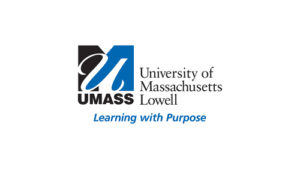 The University Of Massachusetts–Lowell (UMass–L), started in 1894, is a nonprofit research university that has been recognized by Forbes and Payscale for offering a great value education and a high ROI. The establishment can be found on an urban 142-acre campus in heart of Lowell, MA–just 30 miles from Boston–on the Merrimack river. Accredited by the New England Association of Schools and Colleges (NEASC)–the regional authority of all levels of educational quality–UMass-L currently ranks #156 National Universities and #216 Best Business Programs by U.S. News & World Report. University Of Massachusetts enrolls approximately 13,266 undergraduate students, guarantees a student-faculty ratio of 17:1, and 59.4% of classes cater to less than 20 students while average class size is 27.
The University Of Massachusetts–Lowell (UMass–L), started in 1894, is a nonprofit research university that has been recognized by Forbes and Payscale for offering a great value education and a high ROI. The establishment can be found on an urban 142-acre campus in heart of Lowell, MA–just 30 miles from Boston–on the Merrimack river. Accredited by the New England Association of Schools and Colleges (NEASC)–the regional authority of all levels of educational quality–UMass-L currently ranks #156 National Universities and #216 Best Business Programs by U.S. News & World Report. University Of Massachusetts enrolls approximately 13,266 undergraduate students, guarantees a student-faculty ratio of 17:1, and 59.4% of classes cater to less than 20 students while average class size is 27.
University of Massachusetts-Lowell’s Master’s Degree in Business Administration is an entirely online program that teaches via projects and case studies applicable to commercial, industrial, and not-for-profit settings. The 30-42 credit-hour curriculum requires 6 foundation, 7 core, and 3 elective courses. Required MBA electives can either be generalized or specialized by selecting an area of focus among: Information Technology Project Management, Information Technology Infrastructure, Enterprise System Management, and others. The program offers prestige because of its AACSB-accreditation–and because it’s taught by full-time faculty who are experts in their fields and by adjunct faculty who are active practitioners. The average indebtedness of graduates is only $32,000 and 18% of graduates take on student loan debt. Finally, 81% of the program’s professors hold terminal degrees.
7. Stevens Institute of Technology School of Business
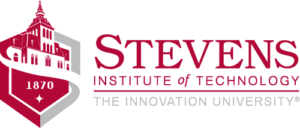
Stevens Institute of Technology School of Business, founded in 1870, is a private, research university and one of the oldest technological universities in the United States. The school offers a cooperative educational track option and is ranked as one of the most innovative schools in the nation, and known for its eco-friendliness and sustainability. The establishment occupies an urban 55-acre college campus in Hoboken, NJ–recognized as a Top 5 College Town by Princeton Review 2018 and just minutes from New York City. Stevens is accredited by The Middle States Commission On Higher Education–an Institutional Accrediting Agency– recognized by the U.S. Secretary of Education and the Commission on Recognition of Postsecondary Accreditation. Stevens Institute of Technology School of Business ranks #69 National Universities by U.S. News & World Report for 2018. Stevens Institute of Technology School of Business enrolls approximately 3,021 undergraduate students, guarantees a student-faculty ratio of 10:1, and 36.3% of classes cater to fewer than 20 students.
Stevens Institute of Technology School of Business’ MBA is designed to help students acquire skills required in the industry and gain a perspective into ethical, technology issues and strategic questions. Designed to work for both full- and part-time students, prepare for leadership roles within corporate IT department and learn how to interpret information to make better business decisions. You will gain hands-on experience by applying analytics and quantitative methods to solve real business problems–an emphasis is placed on management, analytics, innovation and marketing with an engineering component. The 48-credit-hour program requires 12 technology-infused core courses where the business curriculum emphasizes collaboration through group projects and presentations and develops creative, critical thinkers. After core coursework, the program is customizable with one of five concentration areas. The program offers prestige thanks to its AACSB-accreditation–something less than 5% of international business schools can claim–a #78 ranking for Best Online MBA Programs, and because 94% of professors hold terminal degrees. Finally, 30% of graduates take on student loan debt and average indebtedness is $35,928 .
8. Regent University

Regent University, established in 1978, is a private, co-ed, non-denominational institution known to produce great Christian leaders. The school occupies a suburban 70-acre campus with Georgian-style architecture in Virginia Beach, VA. Regent is currently ranked #Tier 2 National Universities and #228 in High School Counselor Rankings by U.S. News & World Report. Regent University enrolls about 2,995 undergraduate students, provides a student-faculty ratio of 19:1, 61.2% of classes cater to fewer than 20 students and the average class size is 15.
Regent University’s MBA with a concentration in Small Business Information Technology is offered entirely online and will develop leadership and strategic skills essential for success in today’s global marketplace with a strong Christian foundation. Participants will be specifically equipped with skills in IT analysis, systems technology, and ethical decision-making and be prepared for positions as Executive Business Leaders. The program curriculum will help students gain the understanding and knowledge of Information Systems hardware, Software & architecture, and Decision Support Systems (DSS) as Managerial tools. With special emphasis in a small business e-commerce environment, students will also delve into the project management process by designing and developing a real project in depth. The program guarantees prestige because of its AACSB-accreditation. The average indebtedness of graduates is $50,741 and 57% of graduates take on student loan debt. Finally, 100% of the program’s professors hold terminal degrees.
9. Dallas Baptist University Graduate School of Business
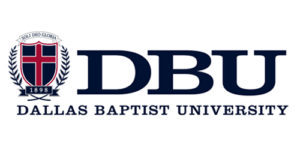
Dallas Baptist University Graduate School of Business (DBU), founded in 1898, is a private, liberal arts, Baptist-affiliated, faith-based institution. The establishment sits on a suburban 292-acre campus in Dallas, TX. Also accredited by the Southern Association Of Colleges And Schools Commission On Colleges (SACSCOC), DBU ranks #202 National Universities by U.S.News & World Report for 2018. Dallas Baptist University Graduate School of Business registers about 3,223 undergraduate students, guarantees a student-faculty ratio of 12:1, and 66.1% of classes cater to less than 20 students while average class size is only 13.
Dallas Baptist University Graduate School of Business’ MBA is designed to prepare individuals to learn business fundamentals but also to have a strong base in information systems technology. The 36-credit-hour curriculum requires 24 core, 12 credit-hours of electives and focuses on in-depth, hands-on understanding of the fundamentals of information systems. The infotech concentration of Management of Information Systems includes some of the following: Systems Analysis & Design, Database Management Systems (with field-based service-learning component), Networks & Telecommunications, and Security. The program provides prestige due to an accreditation from the Accrediting Council for Business Schools and Programs (ACBSP), a #175 ranking in Best Online MBA Programs, and because 100% of professors hold terminal degrees.
- Homepage
- Flexibility Enhancing Components:N/A
10. Florida State University College of Business
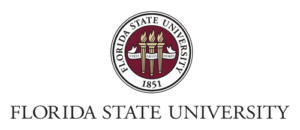
Florida State University (FSU), started in 1851, is a public space-grant and sea-grant research institution. The establishment sits on an urban 476-acre campus in Tallahassee, FL. Accredited by the Southern Association Of Colleges And Schools (SACS), FSU currently ranks #81 Best National Universities and #38 Top Public Schools by U.S. News & World Report. Florida State University registers about 32,706 undergraduate students, offers a student-faculty ratio of 25.1:1, offers an average class size of 25, and 32.7% of classes cater to less than than 20 students.
Florida State University College of Business’ Master of Business Administration (MBA) is a highly customizable program that provides access to a strong professional network. While it is not required to have prerequisite courses to start the program, it is recommended to have a general knowledge of accounting, economics, finance, and statistics. Notably, students can opt to customize their program with a Master of Science in Management Information Systems. The 39-credit-hour program requires 9 core and 4 elective courses as part of an innovative curriculum directed at strengthening your managerial skills in fundamentals ranging from accounting and marketing to operations and strategy. Select a specific business focus such as Management Of Information Systems and strengthen your management, technical, and analytical skills. The program covers topics like project management, management of technology, knowledge management, business intelligence, electronic business, and social and organizational issues related to information systems and is designed to be completed in 24 months. The program guarantees prestige with its AACSB accreditation–something less than 5% of international business schools can claim–and because 100% of the program’s professors hold terminal degrees. Finally, average indebtedness of graduates is only $14,379 and 31% of graduates take on student loan debt.